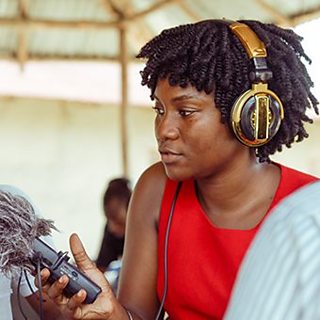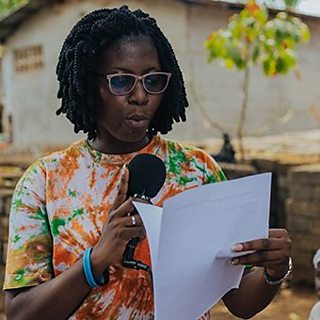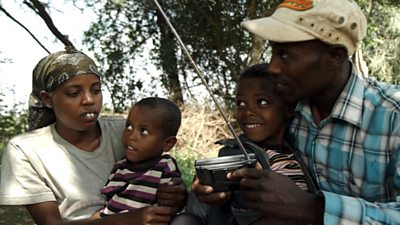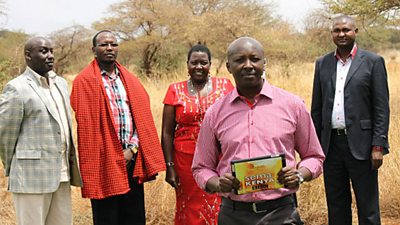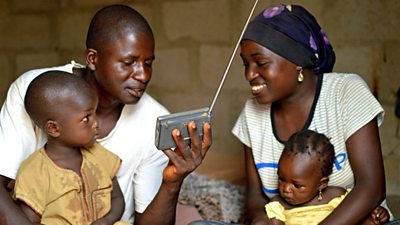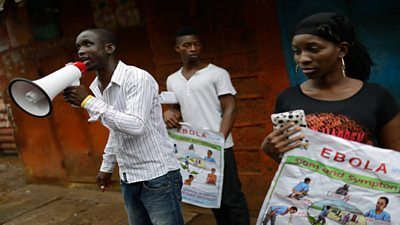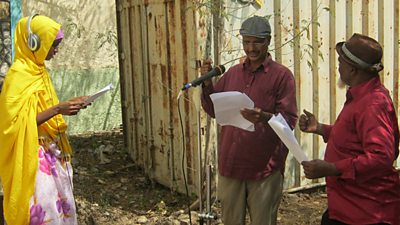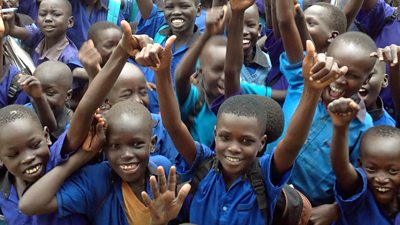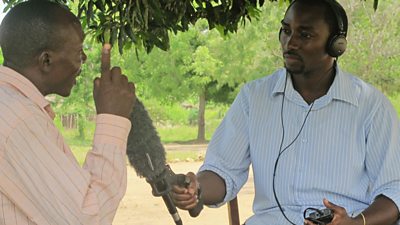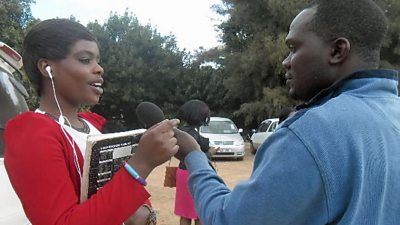Without education, you can be discriminated against and stigmatised in the community and even by your own relatives.
Out-of-school girls in Sierra Leone face risk of violence, economic barriers to opportunity, a lack of safe spaces for learning and of female role models, a shortage of opportunities to learn or train outside of formal classrooms, and harmful socio-cultural norms and practices.
Our EAGER project harnesses media and communication to challenge negative attitudes and practices, including those resulting from harmful and discriminatory social and gender norms that hinder adolescent girls, particularly the most marginalised. Our radio programmes and social media content challenge barriers to accessing education, informal learning and training, and opportunities for employment.
Our radio programme, Wae Gyal Pikin Tinap (When a Girl Child Stands), features young presenters and inspiring voices of girls who have been able to return to school or to earn a living for themselves - including the story of Aminata, a young woman who uses a wheelchair, who told listeners how she was able to eventually start a business selling toiletries and hygiene products, by saving the money she earned from begging at the side of the road.
Meet two of our presenters:
“These programmes have empowered and educated girls and women to be self-reliant, to be independent, and have allowed them to be in control of their lives and choices. We support them to own and tap into their hidden talents, and learn new skills, and help them to understand that they deserve as much opportunity as anybody else. They can make positive decisions about anything.
"This project has shown out-of-school girls that we value them and we see them. Women and girls are at the centre of every good thing we’ve done these past years with our programmes.
"Producing and presenting  Wae Gyal Pikin Tinap has been a hectic but fun and fulfilling process. From planning to packaging the 30-minute programme, I have appreciated every bit of it. I believe in knowledge gained and amplified. It’s quite important to me because I am in a position to help other girls thrive in their environment and see that they can become who they want. I want to enhance people’s knowledge about different topics and issues, and to be able to inform and educate girls about their rights, shaping minds and shifting norms. This program has shaped me as a girl and my approach to so many things.  I believe every girl really does deserve the best.
"Something about presenting gives the feeling of almost freedom, to be myself on air and let the world feel my authentic self. My love for journalism prompted me to start advocacy and presenting at age 16. I have always known this is my craft, this is the route to leaving a mark in the world. Part of what inspires me every day is getting to hear and recording interesting stories, travelling and connecting with strangers. It’s knowing that every single day I get a chance to change the world by shaping minds and inspiring others, especially girls. It captivates me and satisfies my love for the job."
"This project has helped woman and girls to be bold and be able to stand up for themselves and make decisions that will benefit them. This project has impacted the lives of so many women and girls who thought all was lost and had no hope or dreams.
"Presenting and producing Wae Gyal Pikin Tinap and Kotoku Baray (Open Secrets) gives me joy. Women and girls feel connected when they see another woman talking with them, especially when you are talking about issues that involve them.
"Giving voice to girls and helping them believe in themselves and telling their stories makes me happy because I feel like I am contributing to society and to their wellbeing.
"To be a presenter is something I have always loved to do, and the girls themselves inspires me every day. When you feel appreciated and see good impact in the lives of women and girls, it motivates you to do more."
Building on research
As part of a consortium, Â鶹ԼÅÄ Media Action is producing a national radio drama and discussion programme to tackle these topics. We are training local media professionals in 18 radio stations in 10 districts, and providing formative research and evaluation of the impact of the project.
We are working to foster more supportive attitudes and behaviours among families and caregivers towards girls’ education and we’re using learning from our research in Sierra Leone and our work in South Sudan to inform this project.
Project information
| Project name | Every Adolescent Girl Empowered and Resilient (EAGER) |
| Funder | (FCDO) |
| Dates | January 2019 – June 2022 |
| Themes | Education |
| Outputs | A national radio drama, radio discussion programme and training for local media in 18 radio stations in 10 districts. |
| Partners |
Our insight and resources
-
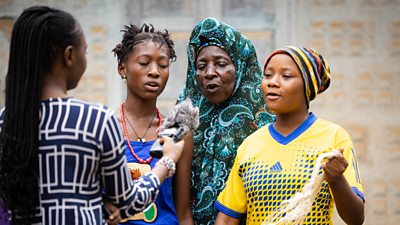
How radio can build a more supportive environment for girls’ education, learning and empowerment
This research briefing presents insights and recommendations from an evaluation of the reach, engagement and impact of the two radio programmes produced by Â鶹ԼÅÄ Media Action in Sierra Leone under the EAGER project. -
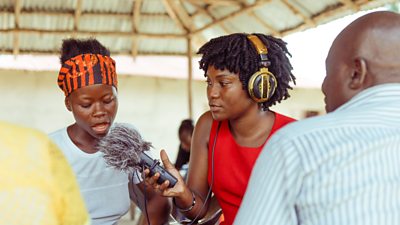
Social and Behaviour Change Communication Strategy
This SBCC Strategy document was adopted by the EAGER project to foster and sustain a supportive environment for girls’ education on a national level. -
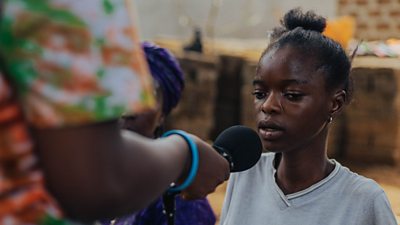
Listening guide: Wae Gyal Pikin Tinal radio magazine show
Wae Gyal Pikin Tinap (When the Girl Child Stands) is for and about adolescent girls and their parents, caregivers and partners. Produced by Â鶹ԼÅÄ Media Action in Sierra Leone as part of the EAGER project. -
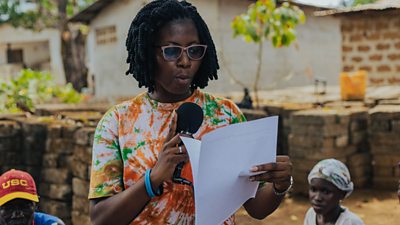
Listening guide: Kotoku Baray radio drama and discussion show
Kotoku Baray (Open Secret) explores some of the barriers that adolescent girls face and encourages conversations around sensitive topics. Produced by Â鶹ԼÅÄ Media Action in Sierra Leone as part of the EAGER project. -
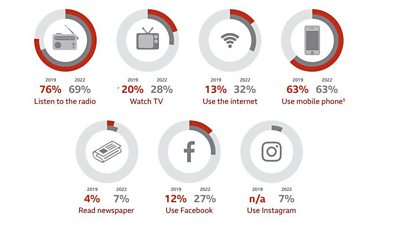
Sierra Leone media landscape survey 2022
This media landscape research study was conducted by Â鶹ԼÅÄ Media Action under the EAGER project in Sierra Leone.
Our projects in Sierra Leone
-
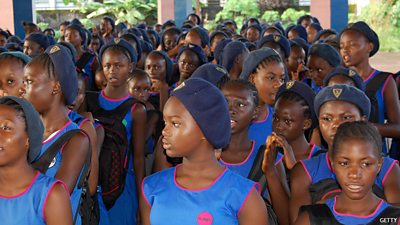
Empowering adolescent girls in Sierra Leone
There are 32,500 girls in Sierra Leone aged 13-17 who are not in school. Our project called Every Adolescent Girl Empowered and Resilient (EAGER) aims to aid in their transition to education, training or employment and inspire hope for their future. -
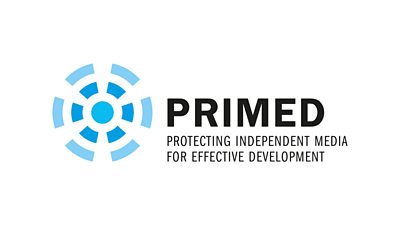
Protecting independent media for effective development
We are working with media support organisations and local partners to find out what works in supporting public interest media in Sierra Leone, Ethiopia and Bangladesh. -
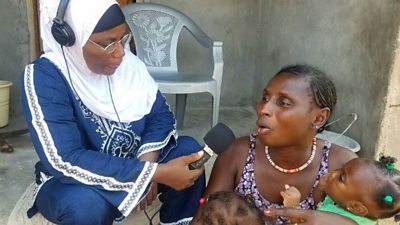
Protecting pregnant women and children from malaria in Sierra Leone
Using insight from our response to the Ebola outbreak we're building awareness about malaria for those most at risk, using radio, TV, social media and community outreach. -
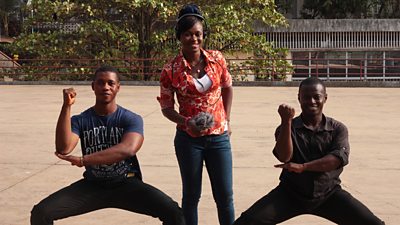
Using radio and television to inspire young people in Sierra Leone
Mi Stori (My Story) aims to inspire young people in Sierra Leone to be active, positive participants in their community through an interactive radio show and mini-documentaries championing positive role models.

